Quote of the Day: This is a particularly thrilling show to take around the country because people have a great identification with the material and it is interesting to feel the responses in different cities and all that. Richard Thomas, on playing Atticus Finch in the National Tour of To Kill a Mockingbird, from an interview with Debra Wallace in Parade.
Playwright Aaron Sorkin has taken this classic story of social injustice to a more intimate and intense level. The story is still narrated by Scout Finch (Melanie Moore) with commentary from her brother Jem (Justin Mark) and new friend Dill Harris (Steven Lee Johnson). I’ve seen the older version of this play a few times where children were cast as these three characters. Depending on the production, that version was sometimes cast by adults playing children. In Sorkin’s new adaptation, all the young characters are played by adults. Because the story is told as a memory, the adult actors seem like a good choice, not to mention the intensity of the roles that they play. These three actors do a marvelous job of portraying young people. They give them a sense of wonder and questioning, along with playful antics, without using weird motifs like lisps or high-pitched voices (a pet peeve of mine).

Steven Lee Johnson (“Dill Harris”), Melanie Moore (“Scout Finch”) and Justin Mark (“Jem Finch”). Photo by Julieta Cervantes
Whether it’s in the script, the directing, or response from the audience, there is a built in applause moment when Richard Thomas enters the stage as Atticus Finch. Many of us in the audience who grew up watching him in The Waltons couldn’t contain ourselves anyway. His character of John-Boy is a direct link to our childhoods. Not to mention, Thomas’ extensive career in film and stage deserves all the accolades. It was a thrill to see him in a live performance. And, what a terrific performance it was. Thomas gives the iconic character of small-town lawyer Atticus Finch great sensitivity, wisdom, humor and heart. His interaction with the children is endearing and natural, the way a parent is with their kids who are sometimes too curious for their own good, but so smart and observant that he can’t hold back on explaining the ugly truths of society.
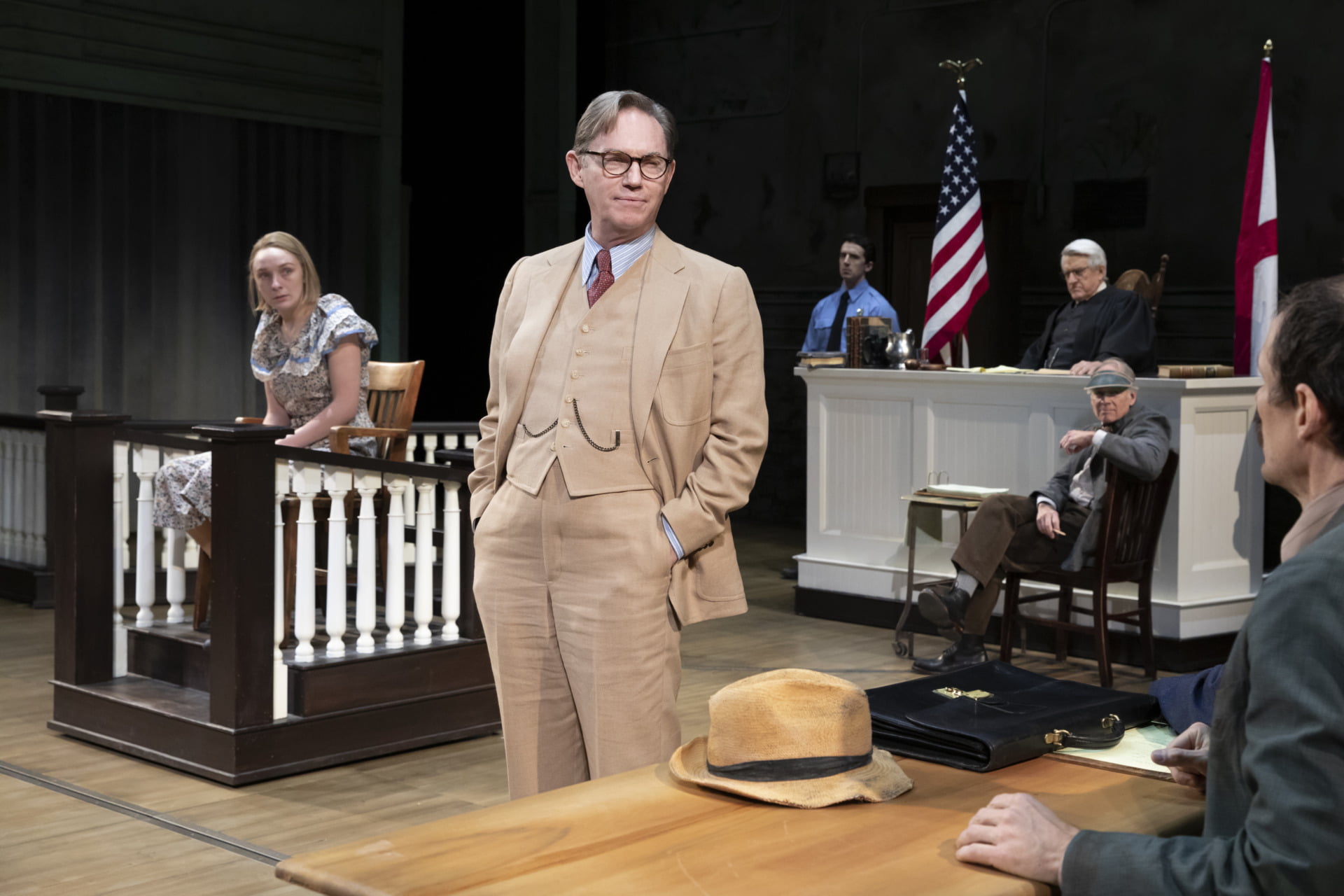
(l to r) Arianna Gayle Stucki (“Mayella Ewell”), Richard Thomas (“Atticus Finch”), Stephen Elrod (“Bailiff”), Richard Poe (“Judge Taylor”), Greg Wood (“Mr. Roscoe”) and Joey Collins (“Bob Ewell”). Photo: Julieta Cervantes
Aaron Sorkin’s skill for writing compelling courtroom dramas comes through in this production. The trial is the central focus with flashbacks of what brought us to the point of an innocent black man sitting accused of raping a fearful and lonely Mayella Ewell (Arianna Gayle Stucki). We, along with Scout, learn what exculpatory evidence is, and feel the outrage with her when it is ignored by the jury of Tom Robinson’s (Yaegel T. Welch) community, but certainly not his peers. It’s the 1930’s and when a white woman, or man, points a finger at a black man, he’s guilty and convicted.

Richard Thomas (“Atticus Finch”), Yaegel T. Welch (“Tom Robinson”) and The Company of To Kill a Mockingbird. Photo by Julieta Cervantes
When Judge Taylor (David Manis) assigns Robinson’s case to Atticus, he knows he doesn’t have a shot in Hell in getting him off, but he knows that Atticus will do everything in his power to give him a fair trial. The testimony is painful to hear. Some of Bob Ewell’s (Joey Collins) lines have a horrifyingly familiar ring as he shouts for rights of white people and brings in his posse of white supremist. The scene in front of the jail one night, when Tom Robinson is awaiting trial, always packs a punch. Atticus goes down to the jail to try to calm a mob of angry citizens who are out to lynch Tom, lead by Bob Ewell and Mr. Cunningham (Stephen Elrod). Atticus might have failed, but the arrival of the three young people stops everyone in their tracks.
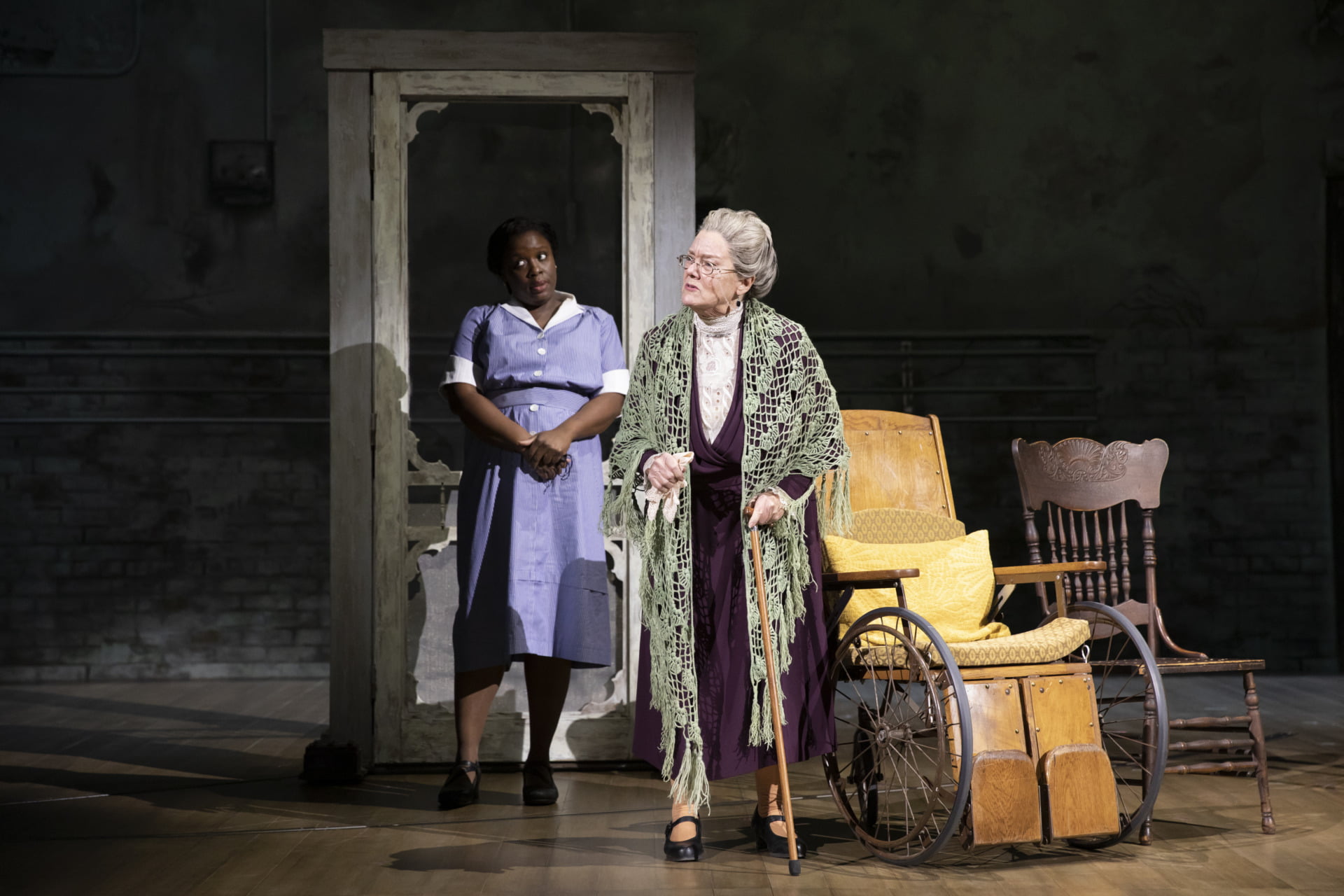
(l to r) Dorcas Sowunmi and Mary Badham (“Mrs. Henry Dubose”). Photo by Julieta Cervantes
Reading the bios in the program notes, I was thrilled to see that Mrs. Henry Dubose is played by Mary Badham who played young Scout in the 1962 Oscar-winning film of To Kill a Mockingbird, starring Gregory Peck as Atticus Finch. Ms. Badham earned an Oscar nomination for her portrayal of Scout. It’s one of those times, when I watched the movie, that I thought it was brilliantly cast. Mary Badham became the vision of who Scout is. Now, she returns to the show as the cranky, old Mrs. Dubose!
This story bring up topics of social injustice. Some of the lines that Calpurnia (Dorcas Sowunmi) has, as well as Atticus’ iconic speech, felt like moments that were particularly poignant in Minneapolis. Link Deas (Jeff Still) has to pretend that he’s drunk all the time so that people in his community don’t condemn him for his relationships with people in the black community. Sheriff Heck Tate (David Christopher Wells) talks about just doing his job to keep the peace.

Travis Johns (“Boo Radley”), Melanie Moore (“Scout Finch”), Steven Lee Johnson (“Dill Harris”) and Justin Mark (“Jem Finch”). Photo by Julieta Cervantes
Although filled with heavy themes and outcomes that cause outrage, the script is filled with several humorous lines and moments. The cast does an excellent job of inserting levity at critical moments. Between the kids and their antics, and comments from community members, especially Cal, the audience had many laugh out loud moments.
You can see this classic play, newly and expertly adapted by Aaron Sorkin, at the Orpheum Theatre in Minneapolis, MN, February 14-19, 2023. You don’t want to miss this stellar cast, including Richard Thomas, directed by Tony Award nominated Bartlett Sher. For tickets and showtimes, go to Hennepin Theatre Trust.
Go. Create. Inspire!
Journaling Prompt: When did you first read, or see, To Kill a Mockingbird? What were your first, or lasting, impressions?

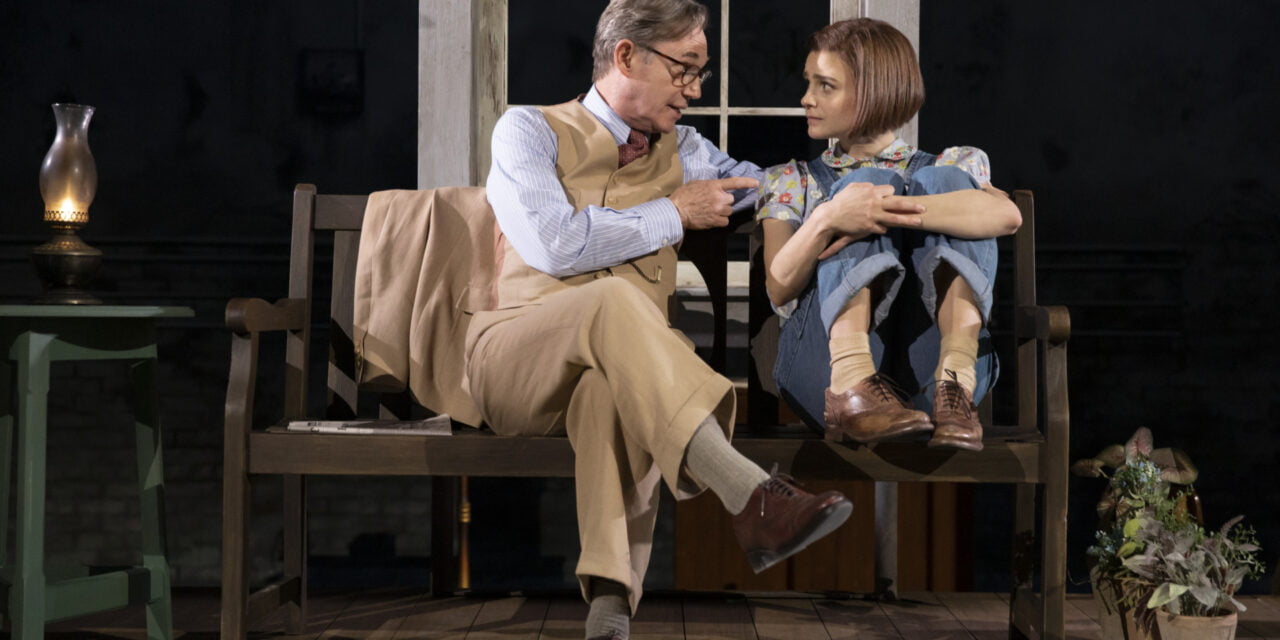



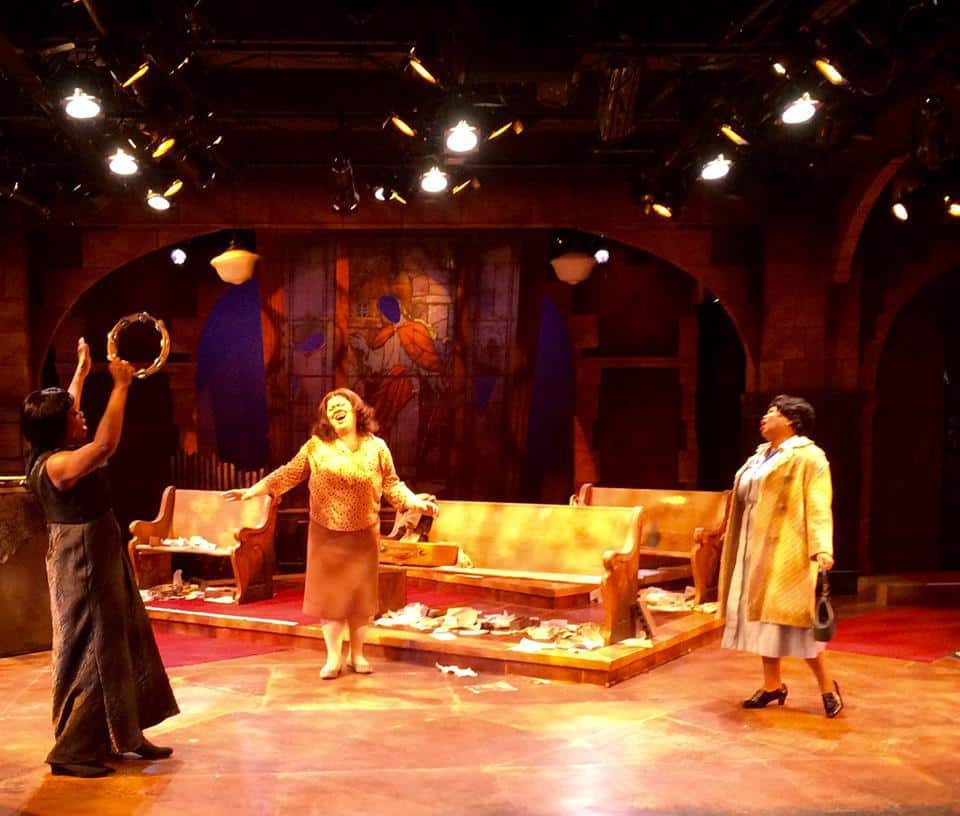

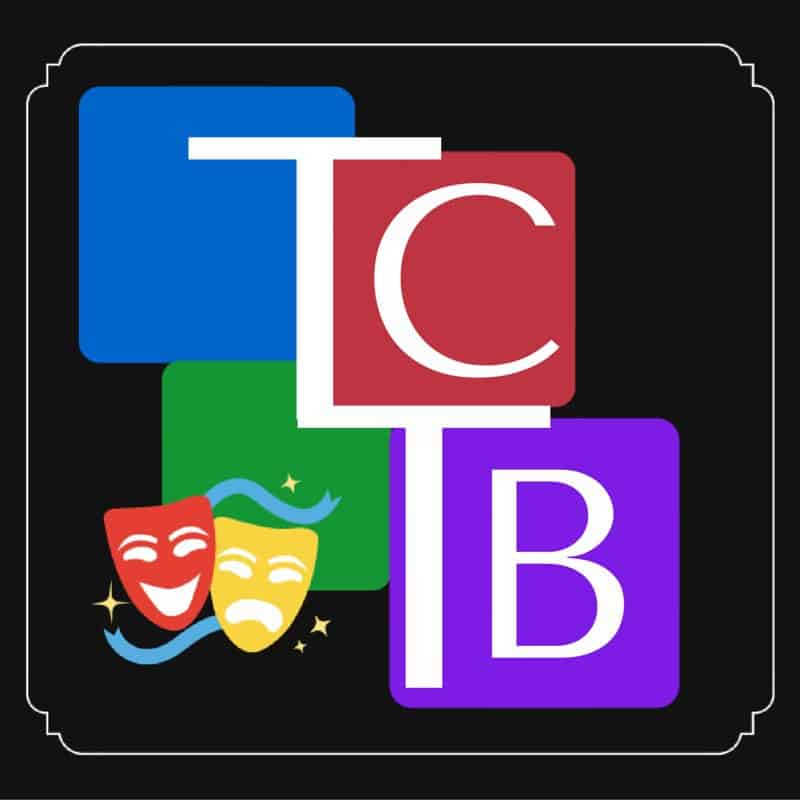

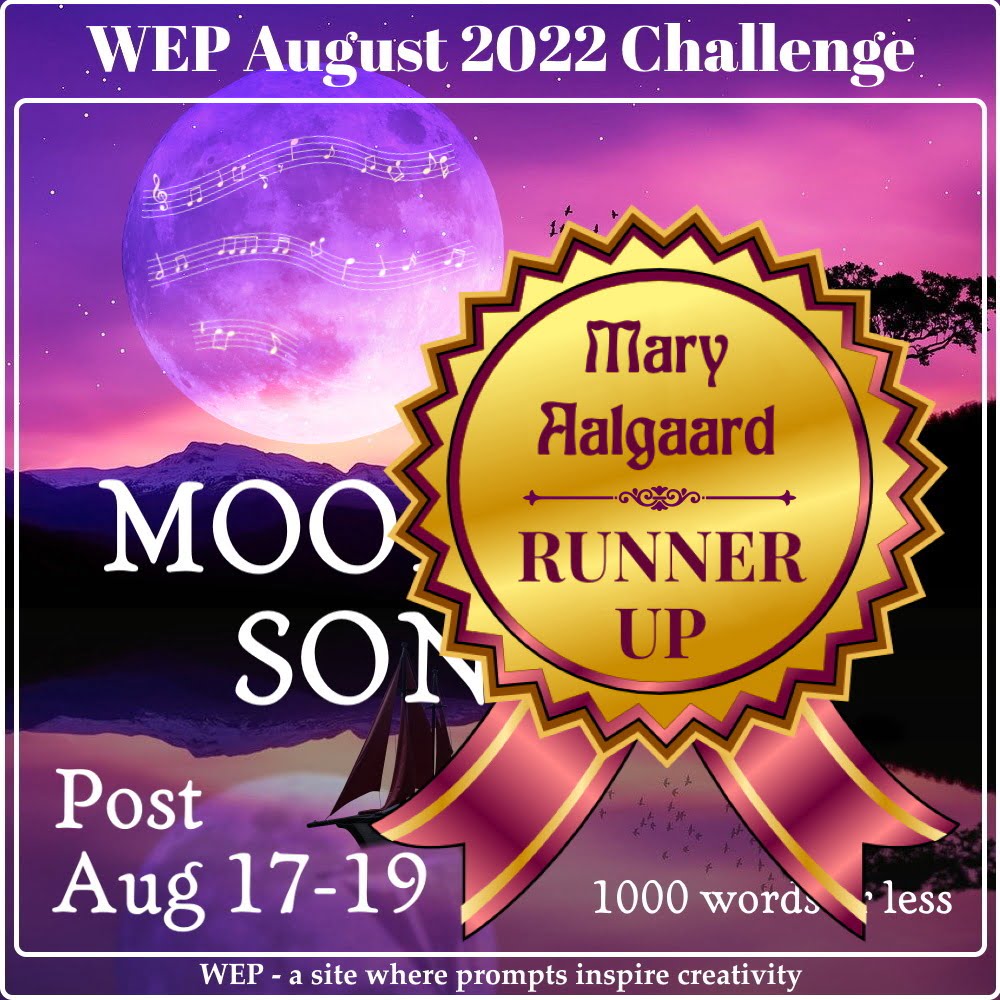

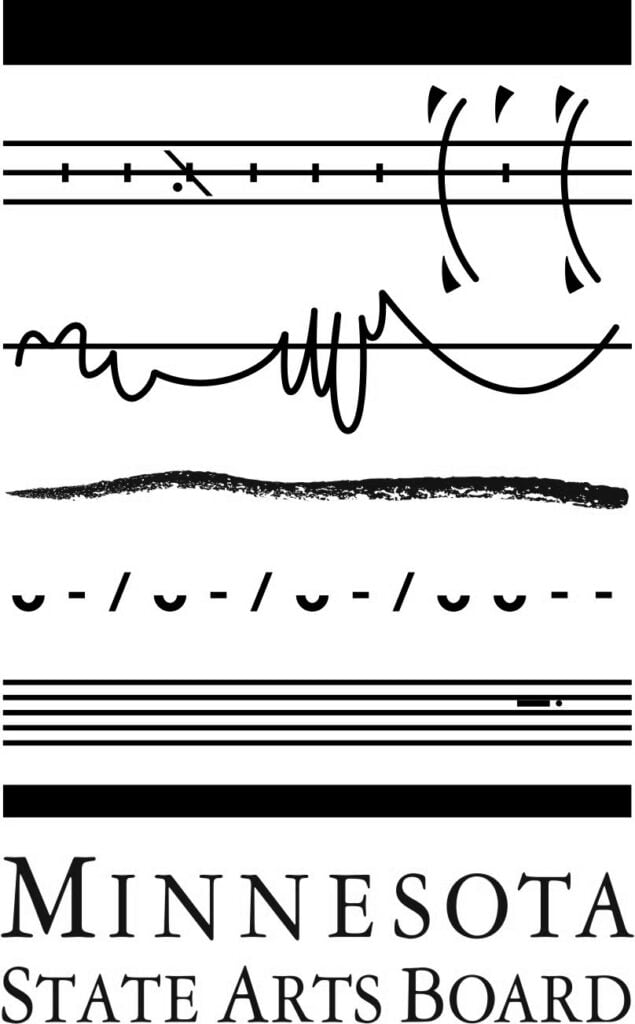
Sounds like an amazing show. Thanks for the review–it felt like I was there.